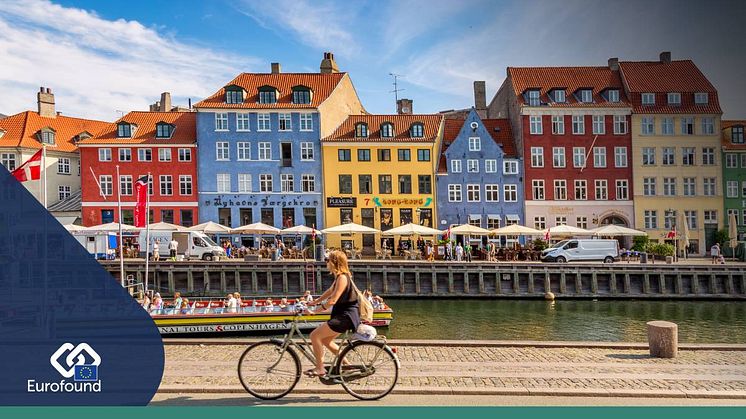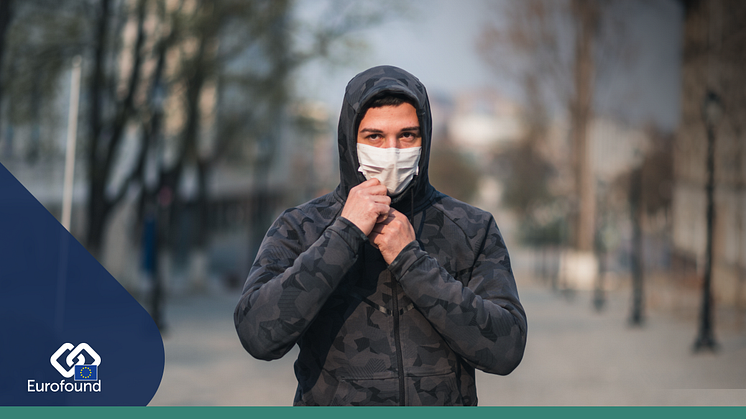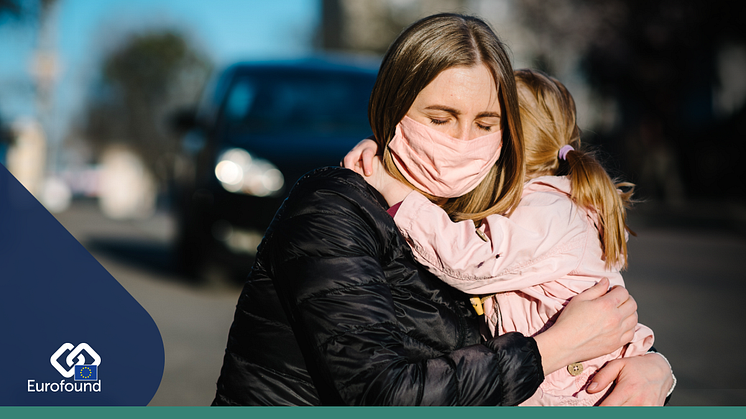
News -
Denmark reports lowest level of job loss and financial insecurity in EU during COVID-19 crisis
First findings from Eurofound's Living, working and COVID-19 online survey provide early indications that people in Denmark have been some of the least impacted by the COVID-19 crisis. The pan-European survey reveals that respondents in Denmark report some of the lowest levels of job loss and financial insecurity in the EU. The survey findings also show that high levels of trust, optimism for the future and well-being have remained intact in Denmark and continue to be among the highest levels across the EU.
These findings are some of the first results from Eurofound’s Living, working and COVID-19 online survey, which amassed over 85,000 respondents in the month of April. The results reveal that fewer than one in ten (9.5%) respondents in Denmark reported losing employment (or contracts in the case of the self-employed) either temporarily or permanently during the first weeks of the COVID-19 pandemic. This is the lowest level of job loss in the EU and is two thirds lower than the EU27 average of 28.5%. While jobs have largely been preserved in Denmark, around a third of people have reported a decrease in working hours (31%) – well below the EU27 average of 49.5%. The survey results also show that people in Denmark report significantly lower levels of financial hardship due to the pandemic, with just 11.5% reporting their financial situation to have worsened, which is below the EU average of 38.2%. In addition, just 6.8% of respondents reported to be struggling to make ends meet during the pandemic, and 2.3% were in arrears in rent or mortgage payments during the previous three months – both the lowest levels in the EU.
These findings go hand in hand with nearly half of all respondents in Denmark reporting to have started to work from home due to lockdown measures, which is the fifth highest level in the EU and well above the EU27 average of 36.8%. This is likely to have played a crucial role in the lower number of respondents reporting loss of employment. While work-life balance issues have been prevalent in many Member States due to teleworking arrangements, it appears working from home has been a mainly positive experience for most respondents in Denmark. The survey results show that just 12% of Danish respondents worried about their job when not working, which is the lowest level in the EU, and is significantly below the EU27 average of 29.1%. Similarly, 11.5% reported that their work had prevented them giving the time they wanted to their family, either all or most of the time, which is again the lowest level in the EU and far below the EU27 average of 18.8%.
Given the low levels of job loss and financial hardship experienced in Denmark due to the COVID-19 pandemic, coupled with a mostly positive experience teleworking, it is not surprising to see that high levels of well-being and optimism have been maintained in Denmark. The findings show that Denmark reports the highest levels of mental well-being and life satisfaction in the EU. This is further strengthened by the majority of respondents reporting to recover quickly when things go wrong, and just 10% expecting their financial situation to worsen in the coming months – well below the EU average of 38.3%. These findings, along with having the highest level of trust in national government in the EU, suggest that people in Denmark are well placed to tackle the challenges in the months ahead.
Eurofound has been monitoring and reporting on living and working conditions in Denmark, in comparison to other EU Member States, since the inception of the agency in 1975.
Read more:
Publication: Living, working and COVID-19: First findings – April 2020
Topic page: COVID-19
Country profile: Living and working conditions in Denmark
Data: Living, working and COVID-19 data






